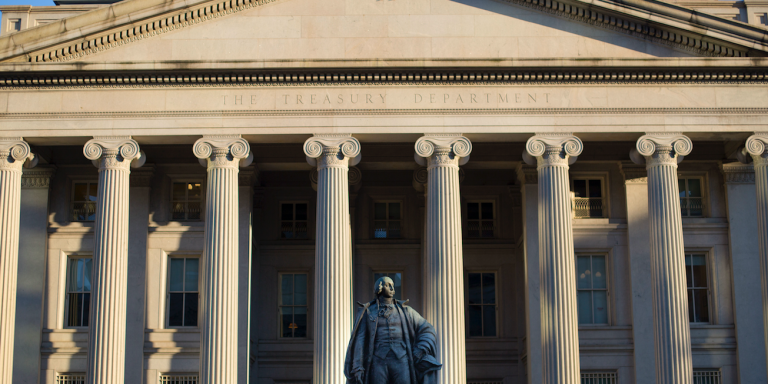INTELBRIEF
January 17, 2018
IntelBrief: The Role of U.S. Sanctions in Foreign Affairs

- On January 12, President Trump imposed sanctions on 14 individuals and entities connected to the Iranian government, the latest on a growing list.
- In August, Trump signed the ‘Countering America’s Adversaries Through Sanctions Act,’ targeting Russia, North Korea, Iran, and Syria.
- Sanctions are a preferred tool in the tracking of terror financing as well as the networks that countries or groups use to quietly acquire weapons and technology.
- As the global economy becomes ever more interconnected, and new currencies, such as BitCoin, emerge, sanctions programs will become even more complicated, yet they will still be an essential tool to obtain national security objectives.
On January 12, 2018, President Trump added 14 Iranian individuals and entities to the list of those already sanctioned by the U.S. government. The U.S. is increasingly reliant on sanctions as a tool to achieve national security goals. The bulk of sanctions implemented by the U.S. government target companies or government organizations in a bid to disrupt their finances and operations. Less often, sanctions are designed to be symbolic and to highlight and shame an individual. In the case of the January 12 sanctions, Sadegh Amoli Larijani, the head of Iran’s judiciary system, was one such individual.
Utilizing sanctions as a means of achieving national security goals has garnered mixed results. The U.S. has had significant success in targeting terrorist financing networks that operate through legitimate banking institutions, including for Hizbollah, which has the financial backing of Iran as well as extensive global business and financial networks of its own. However, the U.S. has had less success utilizing sanctions to thwart the nuclear ambitions of countries, regardless of the economic pain inflicted by sweeping sanctions. Instructively, both Iran and North Korea advanced their respective nuclear programs while under heavy sanctions.
North Korea is currently under the toughest sanctions ever imposed by the international community, with the U.S. pushing for more. These sanctions include embargoes or limits on coal and heavy fuel oil, as well as restricted financial dealings with the North Korean government. Pyongyang has responded to the increased sanctions by calling them a declaration of war by the West and has continued to advance both its nuclear and ballistic missile systems. Nevertheless, putting economic and political pressure on North Korea–and the countries that still do business with the nation–remains the best option, as military action would be potentially catastrophic.
There are, of course, downsides to the expanding use of sanctions. Partner nations understandably object to the imposition of U.S. national security goals on their respective businesses and financial dealings. There is a large difference between multilateral, internationally agreed upon sanctions—such as those imposed on Russia after its invasion of Ukraine and the illegal annexation of Crimea—and unilateral sanctions imposed by the U.S. that affect non-U.S. persons or entities. During a January 10, 2018 hearing of the House Foreign Affairs Committee on the effectiveness of sanctions, Juan Zarate, a former Assistant Secretary of the Treasury for Terrorist Financing and Financial Crimes, cautioned against the overuse of sanctions. While highlighting the ‘critical role that financial measures, including sanctions, play in our national security,’ he warned of the ‘danger of overuse and a diminishment of their value and effectiveness if they are not deployed carefully and with clear strategic intent, especially given the burdens placed on the private sector to implement many of these measures.’
Currently, the Office of Foreign Asset Controls (OFAC), which falls under the U.S. Treasury Department, lists 28 separate sanctions programs ranging from geographical designations to mission-backed designations, such as ‘Counterterrorism Sanctions.’ The OFAC also has a list of approximately 5,500 ‘Specially Designated Nationals,’ which lists individuals and companies connected to a targeted country or government. The complexity of each program highlights the important strategy behind implementing smart sanctions that bring about desired results with the least amount of disruption to the much-larger, non-targeted populations. As the global economy becomes ever more interconnected, and new currencies, such as BitCoin, emerge, sanctions programs will become even more complicated—yet still essential—for national security objectives.
For tailored research and analysis, please contact: info@thesoufancenter.org
[video width="960" height="540" mp4="https://thesoufancenter.org/wp-content/uploads/2018/01/Final-Edit-1-111.mp4" poster="https://thesoufancenter.org/wp-content/uploads/2018/01/Screen-Shot-2018-01-17-at-12.33.14.png"][/video]